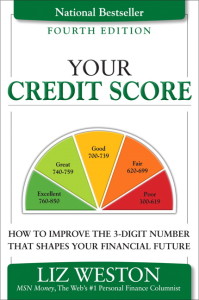Dear Liz: I want to see all three of my credit reports with scores and fix some things on there that could be in error. What site do you recommend to get all three with scores?
Answer: You have a federally mandated right to see your credit reports once a year, and you can access those reports at http://www.annualcreditreport.com. That is the one and only federally authorized site. There are plenty of look-alikes, so make sure you get to the right place. Each of your three reports will include links that will allow you to dispute errors.
When you access your reports, you may be offered credit scores either for a fee or as an inducement to sign up for credit monitoring. Typically, these scores are not the FICO scores that most lenders use. If the word “FICO” is not in the name of the credit score being offered, it’s not an actual FICO score.
To get your FICOs, you’ll need to go to MyFico.com. Currently, you can buy two of your three FICOs — the ones from Equifax and TransUnion — for $19.95 each. Experian has announced it will soon offer FICOs through MyFico.com as well.
